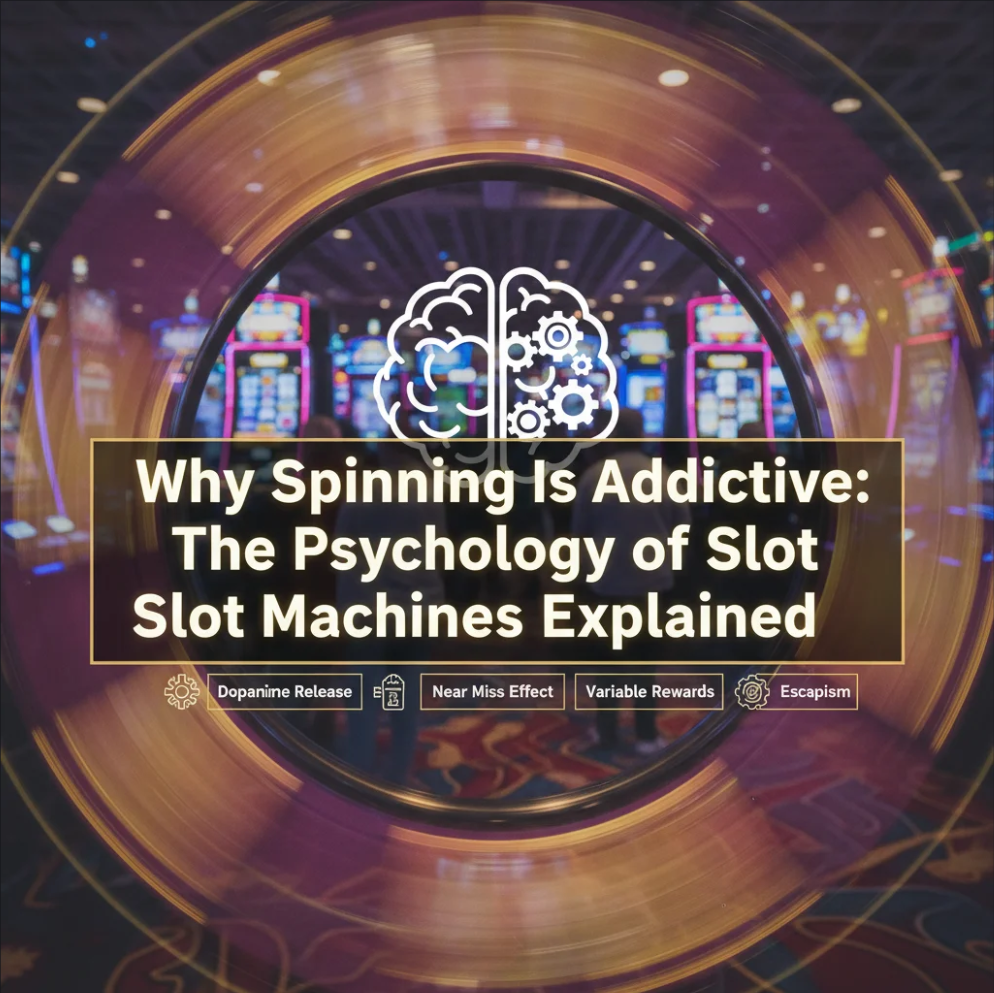
Slot machines are among the most popular forms of gambling worldwide — but have you ever wondered why spinning the reels feels so irresistible? The answer lies not in luck alone, but in the psychology behind player behavior.
From reward systems to sensory stimulation, slot machines are carefully designed to maximize engagement and enjoyment, making them inherently addictive for many players.
🎰 1. The Thrill of Variable Rewards
One of the core reasons slots are addictive is the variable reinforcement schedule:
- Wins occur randomly, not predictably
- Even small payouts trigger a dopamine release, creating excitement
- The uncertainty keeps players engaged longer, chasing the “next big win”
Psychologists compare this to operant conditioning, where unpredictable rewards strengthen behavior — in this case, spinning the reels.
🧠 2. Sensory Stimuli Engage the Brain
Slot machines stimulate multiple senses to heighten player engagement:
- Visuals: Bright colors, animations, and themed graphics
- Sounds: Bells, jingles, and celebratory noises upon winning
- Haptics: Physical feedback in online slots or machines
These sensory cues reinforce the excitement, creating a highly immersive experience that encourages players to keep spinning.
💡 3. The Illusion of Control
Even though slots are games of chance, many players feel a sense of control:
- Choosing bet sizes or paylines
- Timing spins strategically
- “Near misses” that feel like almost-wins
This illusion taps into cognitive biases, making players believe they can influence outcomes, which prolongs play and enhances engagement.
⏱️ 4. Escapism and Emotional Rewards
Slot machines also provide a psychological escape:
- Stress relief through focused, repetitive play
- Short bursts of excitement that break monotony
- A sense of reward and achievement, even with small wins
For many, the emotional high of spinning becomes a form of entertainment and relief, adding to the addictive potential.
⚖️ 5. Responsible Play and Awareness
Understanding why slots are addictive can help players gamble responsibly:
- Set time and budget limits
- Avoid chasing losses
- Take breaks to reduce compulsive behavior
- Seek help if gambling begins affecting daily life
Responsible gaming ensures that the fun stays enjoyable without crossing into harmful habits.
Conclusion
Slot machines are designed to capture attention, stimulate the senses, and engage the brain in ways that make spinning irresistible. From variable rewards to emotional highs, the psychology behind slots explains their enduring popularity and addictive nature.
Awareness of these psychological factors can help players enjoy slots mindfully, appreciating the excitement without letting it control their behavior.



